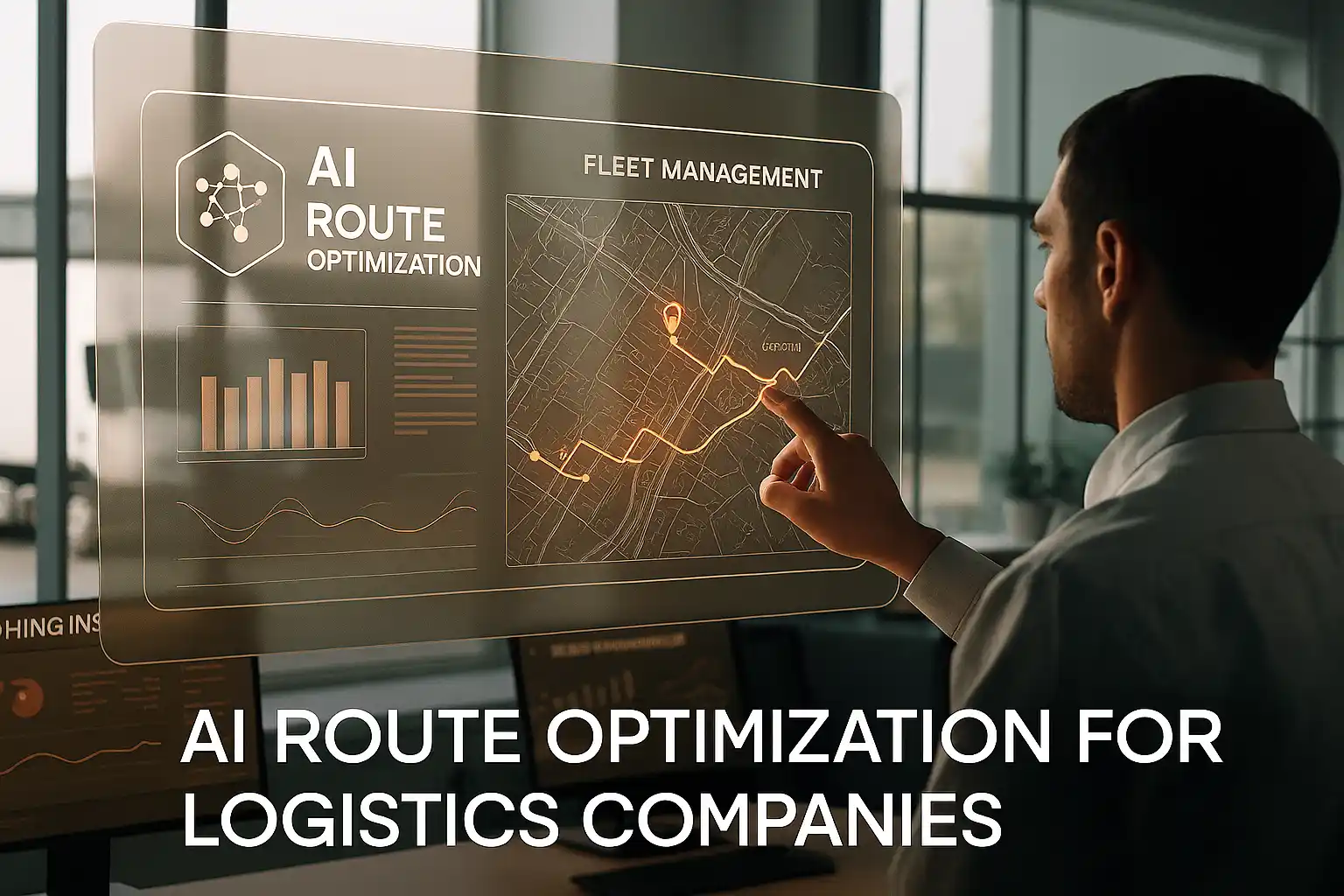AI Route Optimization: A Strategic Move for Logistics Companies

AI Generated Image
Table of Contents
- What Is AI Route Optimization?
- Why Logistics Companies Need AI‑Driven Optimization
- Cloudester’s Expertise in AI Route Optimization
- Real‑World Results
- Challenges and How Cloudester Solves Them
- The Future of AI in Logistics
- Conclusion
Route optimization has always been central to logistics. The ability to deliver goods on time, reduce costs, and maintain reliability determines whether a company thrives or struggles. Traditional route planning methods, however, often fall short in today’s complex environment where traffic congestion, unpredictable weather, and rising customer expectations create constant challenges.
Artificial intelligence (AI) is changing this landscape. AI‑driven route optimization allows logistics companies to plan smarter, adapt faster, and operate more efficiently. At Cloudester, we specialize in building these solutions quickly and securely, backed by ISO 27001 certification to ensure data protection and intellectual property (IP) safety.
This article explores what AI route optimization is, why it matters, how Cloudester delivers it, and what the future holds for logistics companies adopting this technology.
What Is AI Route Optimization?
AI route optimization uses advanced algorithms to calculate the most efficient delivery paths. Unlike static planning tools, AI systems continuously analyze live data such as:
- Traffic conditions
- Weather forecasts
- Delivery time windows
- Vehicle capacity and fuel efficiency
By processing these variables in real time, AI can reroute vehicles instantly when conditions change. This ensures deliveries remain on schedule while minimizing costs.
Key Benefits of AI Route Optimization
- Reduced fuel consumption: Smarter routes mean fewer miles driven.
- Faster deliveries: Real‑time adjustments keep schedules intact.
- Improved fleet utilization: Vehicles spend less time idle.
- Higher customer satisfaction: On‑time deliveries build trust.
Why Logistics Companies Need AI‑Driven Optimization
Rising Costs and Competition
Logistics companies face increasing fuel prices, labor shortages, and customer demands for same‑day or next‑day delivery. Manual planning or outdated software cannot keep up with these pressures.
The AI Advantage
AI systems learn from every trip. Over time, they identify patterns that humans or static systems cannot. This continuous improvement cycle leads to more accurate predictions, better efficiency, and stronger competitive positioning.
Cloudester’s Expertise in AI Route Optimization
Cloudester has built a reputation for delivering AI solutions that combine speed, intelligence, and security.
What Sets Cloudester Apart
- Rapid deployment: We design and launch tailored AI engines in weeks, not months.
- Backend AI strength: Our systems are modular, scalable, and adaptable to unique business needs.
- ISO 27001 compliance: We follow strict data protection standards, ensuring client data and IP remain secure.
- Industry knowledge: Our experience spans logistics, healthtech, and other regulated sectors where compliance and precision are critical.
This approach allows clients to see measurable results quickly without compromising trust or security.
Custom AI Software Development Solution For Enterprises
Real‑World Results
Companies that have adopted Cloudester’s AI route optimization solutions report:
- 20–30% reduction in fuel costs
- Faster delivery times in congested urban areas
- Fewer missed deliveries and reroutes
- Better fleet utilization with less idle time
For example, a logistics firm managing last‑mile delivery across multiple cities reduced operational costs significantly while improving customer satisfaction scores. A healthtech company transporting patients across urban zones achieved higher reliability and compliance with strict service level agreements.
Challenges and How Cloudester Solves Them
Data Security
Handling sensitive delivery and customer data requires strict safeguards. Cloudester’s ISO 27001 certification ensures compliance with global standards for information security.
Integration with Existing Systems
Many logistics companies already use ERP or fleet management tools. Cloudester designs AI engines that integrate seamlessly with existing platforms, avoiding disruption.
Algorithm Accuracy
AI models must reflect real‑world conditions. Cloudester continuously validates and fine‑tunes algorithms to ensure accuracy and reliability.
The Future of AI in Logistics
AI will continue to evolve, offering even greater capabilities for logistics companies. Future systems will:
- Predict delays before they occur using predictive analytics.
- Adjust inventory dynamically based on demand forecasts.
- Reroute deliveries in real time using IoT sensors and live data feeds.
Cloudester is already building these next‑generation features into its platforms, ensuring clients remain ahead of industry trends.
Conclusion
AI route optimization is no longer optional for logistics companies. It is a strategic investment that improves efficiency, reduces costs, and strengthens customer trust.
Cloudester’s expertise in rapid development, backend AI, and ISO 27001–compliant security makes us a trusted partner for companies ready to embrace the future of logistics.
Contact Cloudester today to explore how AI can transform your logistics operations.









